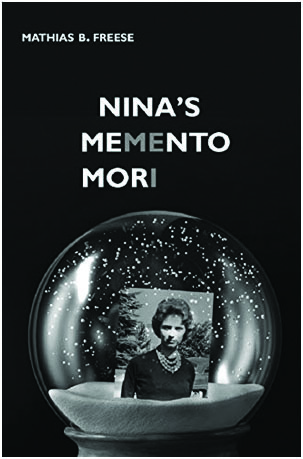Memento Mori is Latin for ‘remember you must die’. The recognition of mortality and the reiteration that life is lived in the midst of death is part of an old tradition iterated in cultures across the world through music, art, poetry, philosophy and writing. Mathias Freese’s book mourns the death of his wife of less than 730 days, Nina. He sets himself up as Nina’s Memento Mori, and speaks of her death and how he is bereft without her, and then works backward and forward in time tracing their childhoods, his, based upon recollected shards and fragments that he dregs up from memory while Nina’s are based upon the accounts he has heard from her and an occasional picture from her childhood. He is nostalgic about Nina, her petite ethereal beauty and her claiming and nurturing of him in the last two years of her life when they were together. He shifts residence so they can stay at a location that she draws greater comfort from. Freese’s mourning of Nina is set against the backdrop of her illness (a disease of the lungs and secondary Amyotrophic Lateral Sclerosis) and death which she fought bravely and combatively. He continues to live on after her, acutely aware of her departure, his own continued mortality and vulnerability and loneliness.
May 2020, volume 44, No 5

